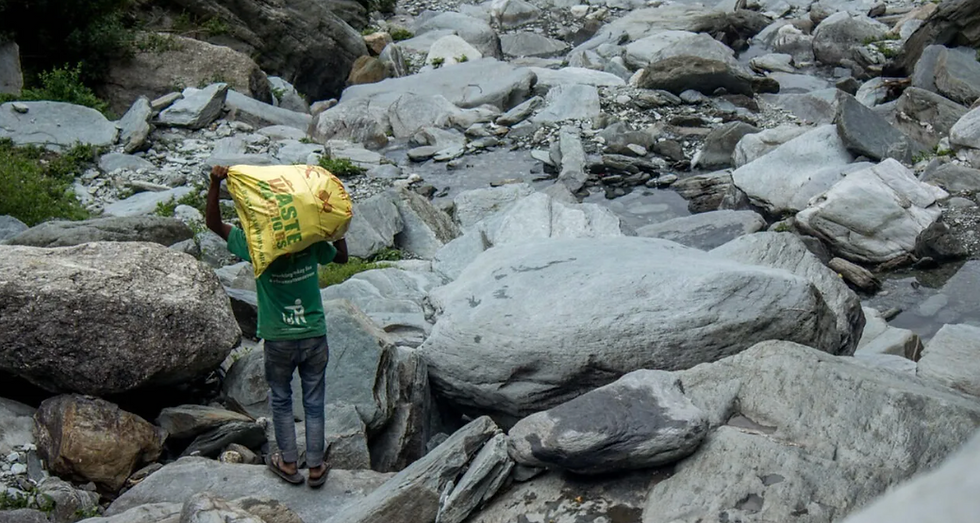Jane Goodall leaves a legacy of science, empathy and hope
- Editorial Team SDG15

- Oct 4, 2025
- 3 min read

The passing of Jane Goodall at the age of 91 marks the end of an era in both science and activism. Few individuals have bridged the gap between empirical research and moral advocacy as seamlessly as she did. Her life’s work, beginning in the dense forests of Tanzania and extending to lecture halls and community projects around the world, redefined the relationship between humans and animals while offering an enduring message of responsibility and hope.
When Goodall first stepped onto the shores of what is now Gombe Stream National Park in 1960, she was just 26 and without formal scientific training. What followed was a revolution in primatology. Her discovery that chimpanzees use tools shattered assumptions that such behaviour was uniquely human, forcing scholars to reconsider the very boundaries of the species divide. By documenting their social structures, personalities and emotional lives, Goodall gave the world an entirely new perspective on our evolutionary cousins.
Breaking convention in science
At a time when field scientists typically assigned numbers to their animal subjects, Goodall instead named them, from David Greybeard to Flo. Critics initially dismissed this as sentimental, yet the approach enabled deeper insights into the individuality of chimpanzee behaviour. She went on to observe not only tenderness and cooperation but also violence and territorial conflict, proving that chimpanzees, like humans, embody both compassion and aggression.
Her PhD from Cambridge in 1966, achieved without first holding a bachelor’s degree, cemented her place in academia. Yet Goodall’s impact extended far beyond research papers. Alarmed by habitat loss and the exploitation of primates in laboratories, she shifted her focus in the 1970s towards conservation and advocacy.
From research to activism
The Jane Goodall Institute, founded in 1977, became the vehicle for protecting endangered chimpanzee populations while supporting community-led conservation efforts. Later, her Roots & Shoots programme, launched in 1991, empowered young people in more than 60 countries to act on environmental and humanitarian issues. These initiatives have since been cited as models of grassroots sustainability aligned with the global goals for a fairer and healthier planet.
Goodall’s voice carried unusual authority: it was scientific, compassionate and urgent. She opposed the use of chimpanzees in medical testing and challenged industries responsible for deforestation. Her message resonated particularly with younger generations, who saw in her a model of persistence and optimism at a time when environmental crises feel overwhelming.
An influence beyond science
Goodall’s legacy is not measured only in academic citations but in the cultural shift she inspired. Her career demonstrated that science and empathy are not mutually exclusive, and that rigorous observation can coexist with a deep ethical commitment. For women entering the male-dominated fields of the 1960s, she embodied possibility. Her influence on STEM careers remains visible today, with increasing numbers of women pursuing primatology, ecology and conservation biology.
According to figures from the International Union for Conservation of Nature, chimpanzee populations have declined by more than 50 per cent in the past 60 years, largely due to habitat loss. Without Goodall’s interventions, the situation might have been still more severe. Yet she insisted on hope, reminding audiences that incremental choices, from sustainable consumption to political advocacy, accumulate into meaningful change.
A lasting message of hope
Jane Goodall died on 1 October 2025 while on a speaking tour in California, a fitting detail that underscores her lifelong commitment to sharing her message until the very end. What remains is a legacy rooted not just in scientific discovery but in a philosophy of interconnectedness: that human survival is inseparable from the survival of other species.
Her words, “Every single one of us makes a difference every day,” remain a call to action. For those who wish to continue her mission, the work of the Jane Goodall Institute and the Roots & Shoots programme provide tangible ways to do so.
Goodall leaves behind not only a transformed field of primatology but also a blueprint for how science can be harnessed to inspire compassion, responsibility and lasting change.
Youtube credits: https://www.youtube.com/@NatGeo & @janegoodallinst
More information and image rights: https://janegoodall.org/



